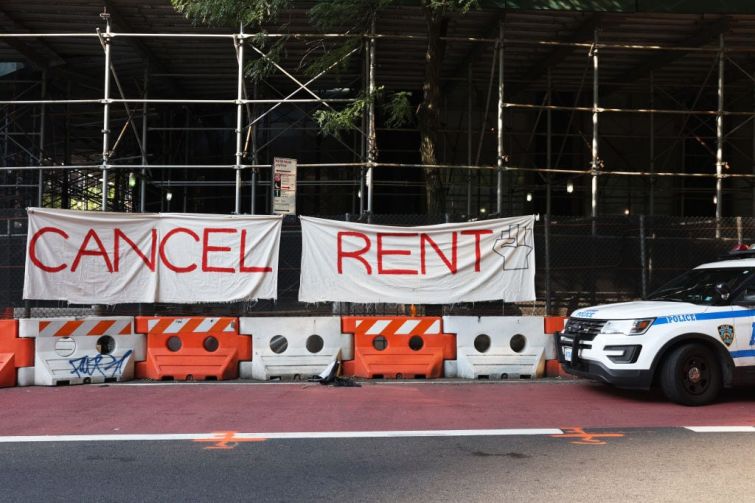CDC Eviction Moratorium Doesn’t Solve Anything: Advocates
By Chava Gourarie September 2, 2020 6:15 pm
reprints
Late Tuesday, the Centers for Disease Control and Prevention announced a nationwide eviction moratorium until the end of 2020 for renters affected by the coronavirus, but critics say it fails to address the crisis facing both renters and property owners.
The ban on evictions, which will last until Dec. 31, applies to renters earning less than $99,000 who can demonstrate a substantial loss in income due to the coronavirus, and does not supersede stronger state moratoriums.
The move does not provide any monetary relief to tenants and rent will continue to accrue along with any additional late fees, and will be due when the ban expires. It also does not provide relief to property owners who cannot collect rent from their tenants because of the economic crisis or begin eviction proceedings against them.
“The moratorium doesn’t really help anyone,” said Jay Martin, executive director of the Community Housing Improvement Program, which represents New York City landlords. “It really just provides the veneer of effort by the federal government, that they’re taking this housing crisis seriously, when in actuality it provides no real relief to renters or property owners.”
Doug Bibby, president of the National Multifamily Housing Council, a group for landlords and property managers, went a step further and said that the ban would actually do more harm than good.
“An eviction moratorium will ultimately harm the very people it aims to help by making it impossible for housing providers, particularly small owners, to meet their financial obligations and continue to provide shelter to their residents,” Bibby said. By passing the buck to property owners, without offering any long-term funding to renters or to landlords, “the stability of the entire rental housing sector is thrown into question.”
The moratorium expands on an earlier federal ban that applied to multifamily housing backed by federal mortgages in forbearance, and it only applies to evictions for nonpayment of rent.
The moratorium comes as the economic and rental crisis intensifies. Six months into the pandemic, people have already faced months of unemployment, while businesses remain closed or restricted indefinitely and the supplemental unemployment benefits offered by the CARES Act expired in July. Efforts to fund a new relief package have stalled in Congress, which is currently in recess for the summer.
While some housing advocates are calling for rent cancellations, CHIP’s Martin says the best option is to provide assistance to renters, in the same way that the CARES Act provided billions in industry-specific interventions. “We continue to advocate for a bailout of renters, so they can continue to pay their rent and money continues to flow [through the housing industry],” he said.
In New York, a $100 million fund to help renters has been exhausted, and any additional funds would require federal funds, Martin said. New York’s eviction moratorium, which has less stringent income documentation requirements than the CDC’s, expires on Oct. 1.


